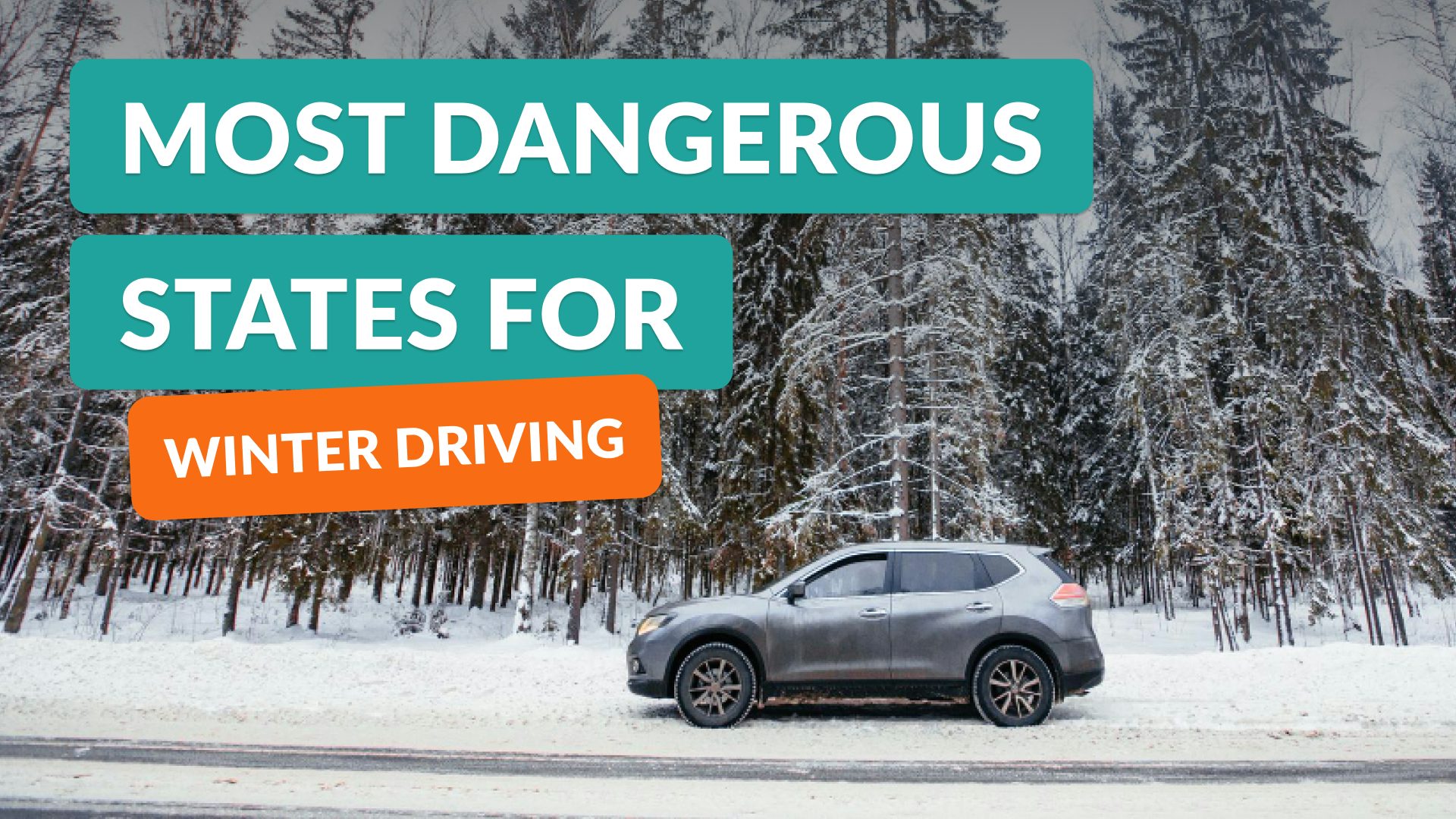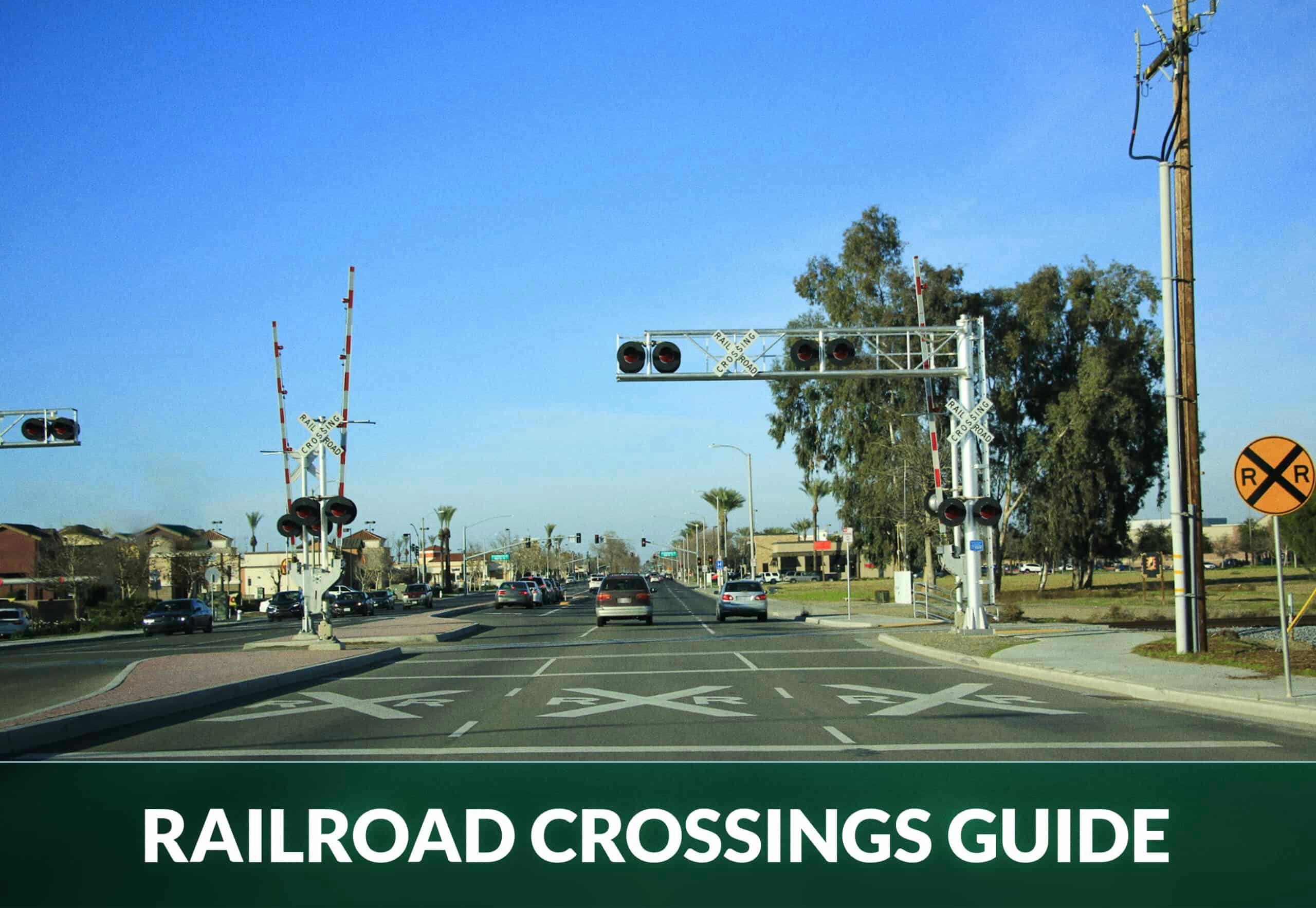
Railroad Crossings – A Complete Driver’s Guide
Almost all injuries and deaths at railroad crossings are preventable and generally a result of driver error.
Trains can take a mile or more to stop so they won’t have time to stop for a vehicle on the tracks.
Today you’ll learn about:
- Types of railroad crossing signs and warning controls
- 9 tips how to safely cross railroad crossings
- What vehicles are required to stop before all crossings
- What to do if your vehicle stalls on the tracks
Knowing how to safely cross railroad crossings is a requirement for every driver, whether you’re a seasoned driver or learning to drive.
What Is a Railroad Crossing?
A railroad crossing is an intersection where a road or path crosses railroad tracks.
Railroad Crossing Signs and Controls
Railroad crossing signs alert drivers of railroad tracks ahead. There are many traffic signs, markings and signals indicating a railroad crossing. If you come across any, slow down and prepare to stop.
Warning signs are usually placed well in advance. Listen and look both ways before crossing the railway, even if there are no flashing lights or other indications of an approaching train.
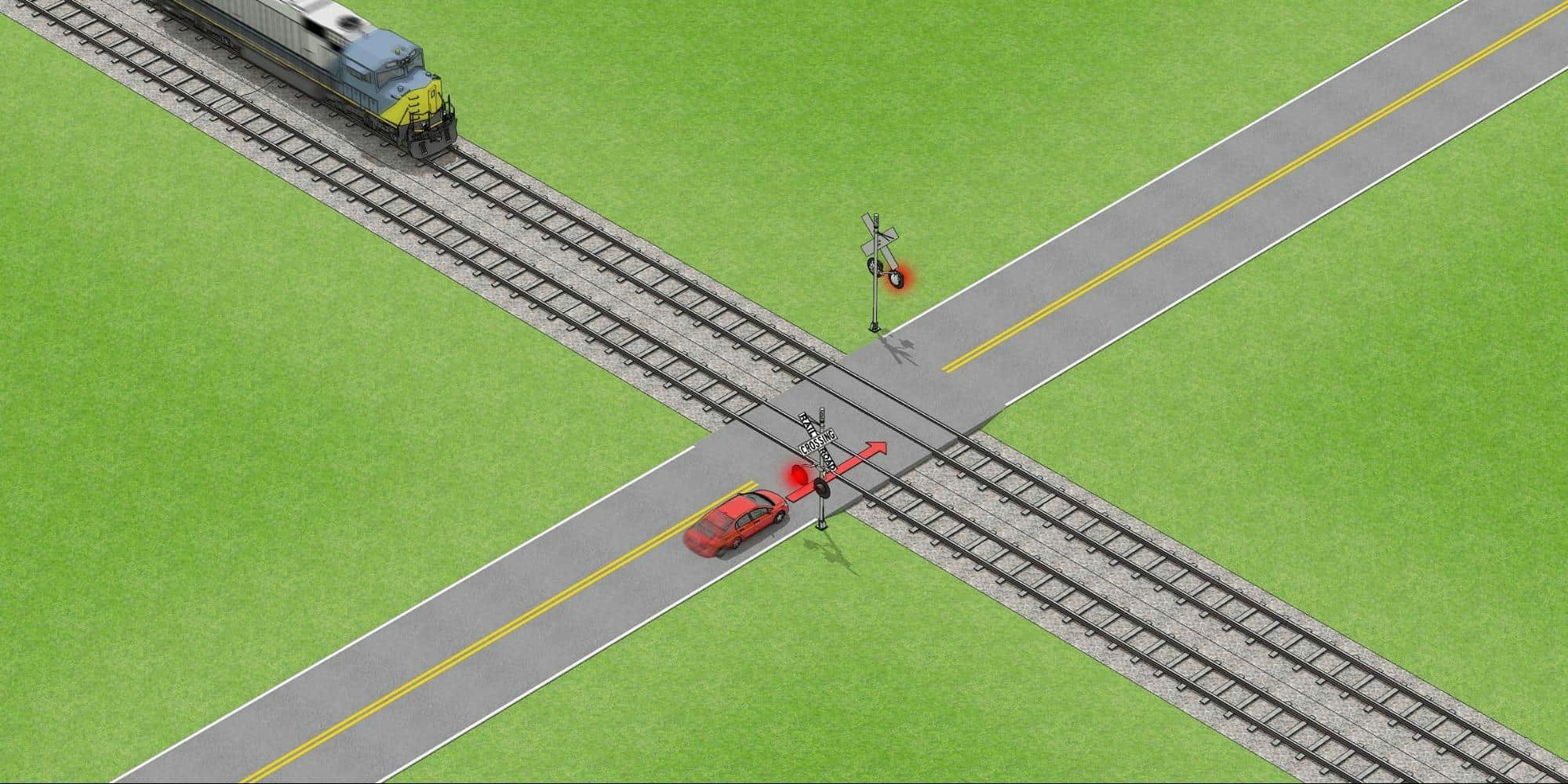
What Are the Different Types of Controls at Railroad Crossings?
There are two basic types of railroad crossing warnings:
- Passive signs – most common are the round yellow advance warning signs, pavement markings, crossbuck signs, stop signs and yield signs.
- Active signs – this includes flashing lights, gates with flashing red lights and other warning devices.
How to Enter and Leave a Railroad Crossing
Here are 9 safety tips for railroad crossings:
- Only cross railroad tracks at designated crossings.
- Approach railroad crossings at a low enough speed so you can stop if necessary.
- Never drive under or around the gates, or past the lights (if flashing). They indicate a train is just about to pass by. 14% of all collisions with trains between 2014-2018 were a result of drivers attempting to drive around lowered gates.
- Don’t begin to cross until the gates are completely raised and the lights have stopped flashing. Always check both directions of the railroad before driving past.
- Stop at least 15 feet away from the crossing if there’s an approaching train, flashing red lights, a stop sign or lowered crossing gates.
- Look for a second train before proceeding! Crossings with multiple-tracks can have several trains passing by simultaneously or within a very short time. Don’t expect it to be safe simply because one train just passed by.
- Take extra care if there are no gates or flashing lights as a train could come unannounced from either direction at any time. You should be even more careful if your view of the tracks is limited (e.g. blocked by building or vegetation).
- Make sure there is enough room to cross – never enter a crossing unless you can safely cross without having to stop on the tracks.
- Don’t shift gears on the tracks to avoid stalling. Remember that trains won’t have time to stop for a vehicle on the tracks.
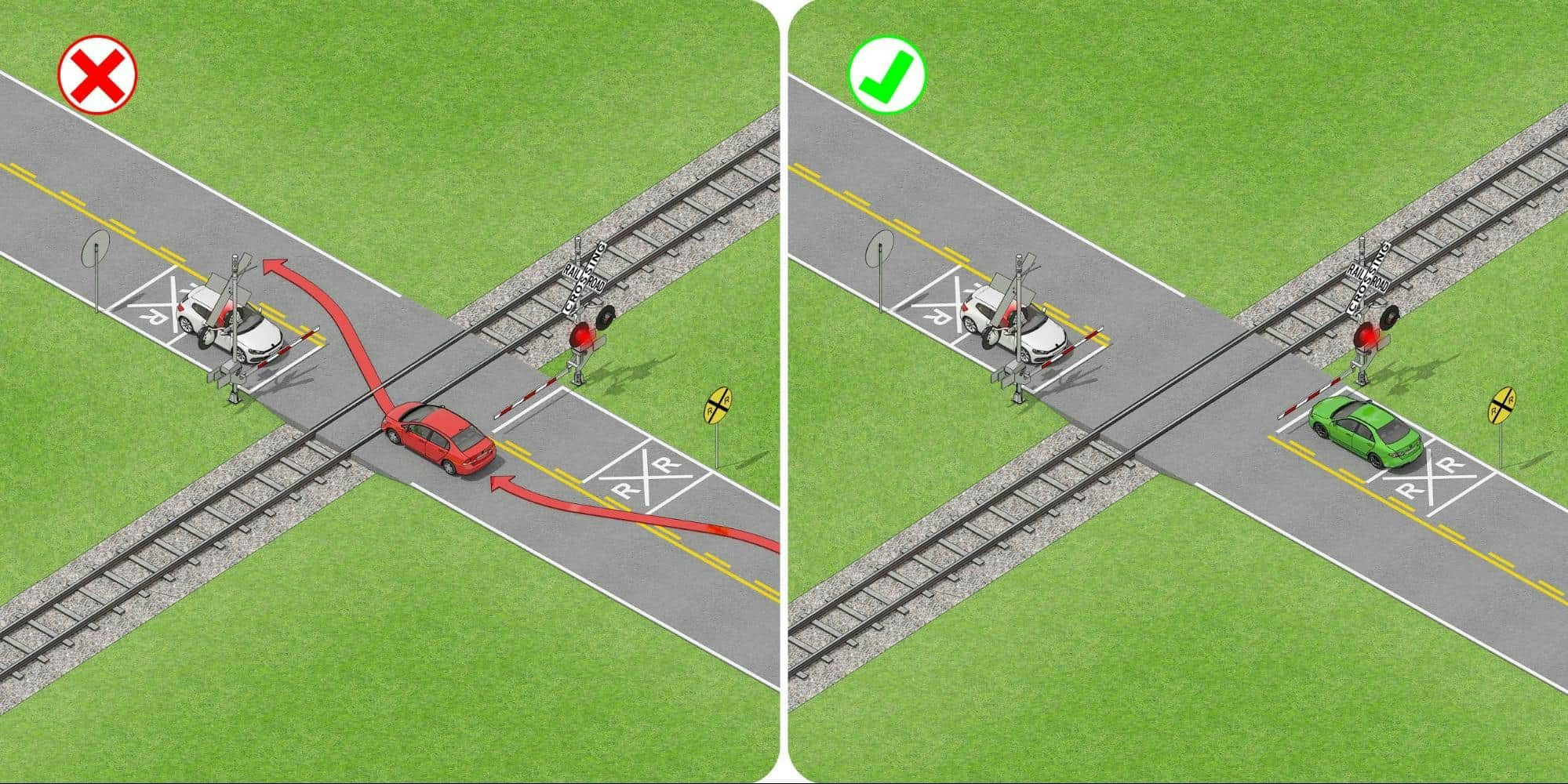
What Vehicles Must Stop at All Railroad Crossings?
Some vehicles must stop before crossing train tracks, so be prepared to stop when driving behind these vehicles. They include:
- Trucks carrying dangerous goods
- Buses
- School buses
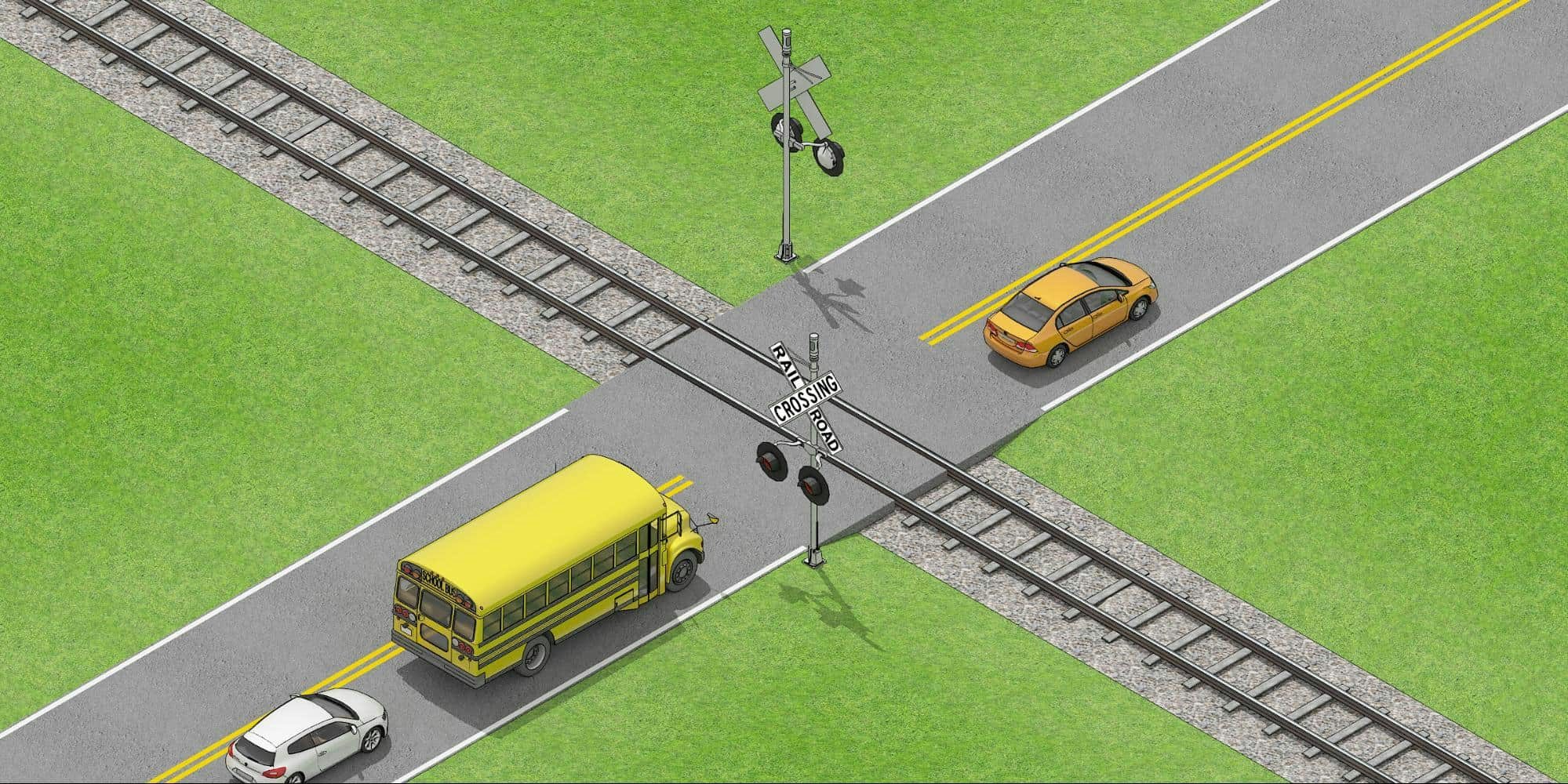
Stalling on Railroad Tracks
It’s extremely dangerous to get stuck on a crossing. To avoid stalling, stay in the same gear when crossing the tracks and only cross if you are certain you can cross the entire tracks safely – i.e. no traffic or obstructions blocking the path.
Trains have long stopping distances and will be unable to stop in time for a car on the tracks!
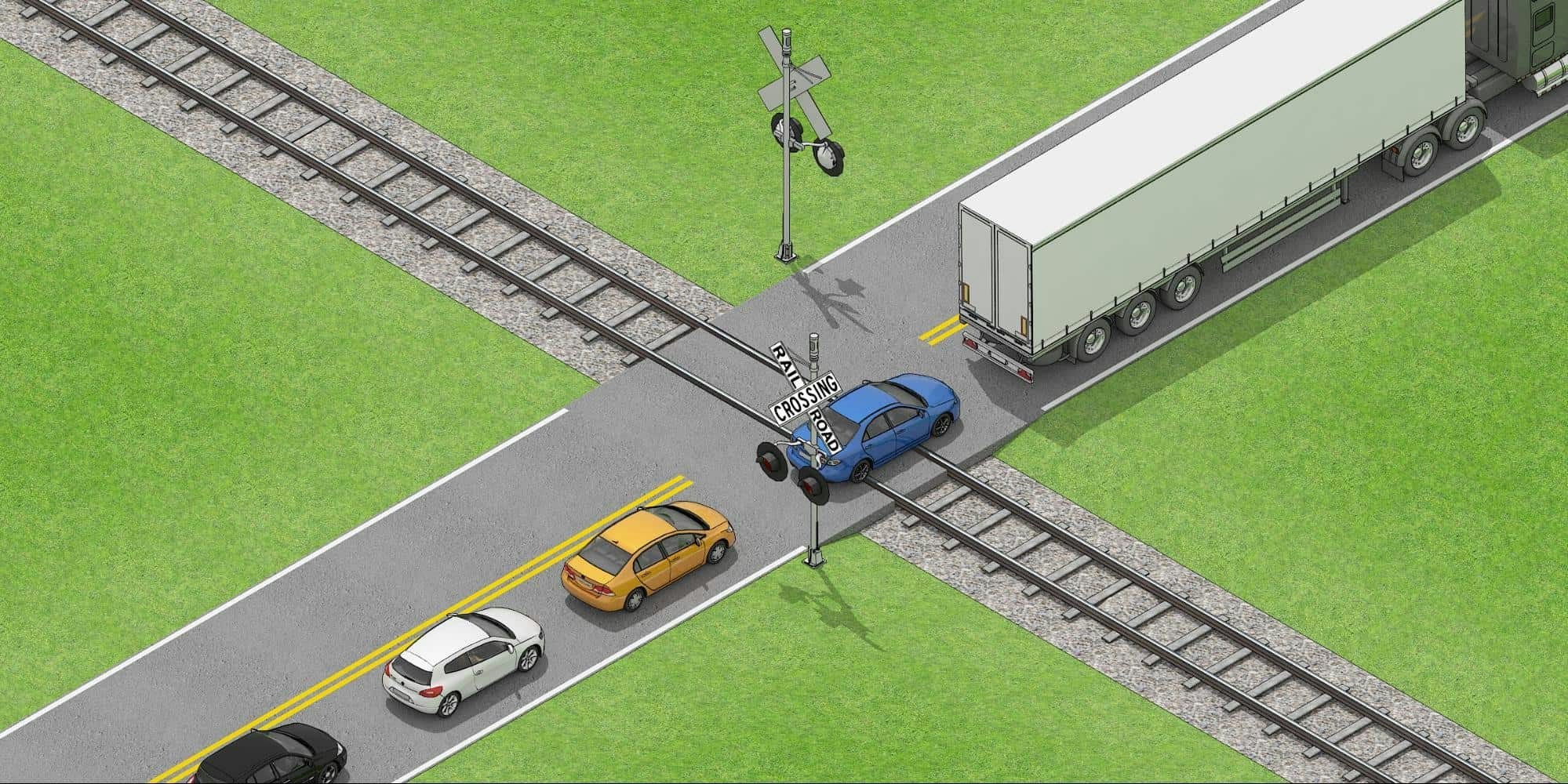
What to Do If Your Vehicle Stalls on Railroad Tracks
If your car stalls on railroad tracks, get out of the car immediately and move away from the tracks. If you can hear or see an approaching train, run away from the tracks at a 45° angle in the direction of the train. That way, you avoid being hit by flying debris if your vehicle is struck by the train.
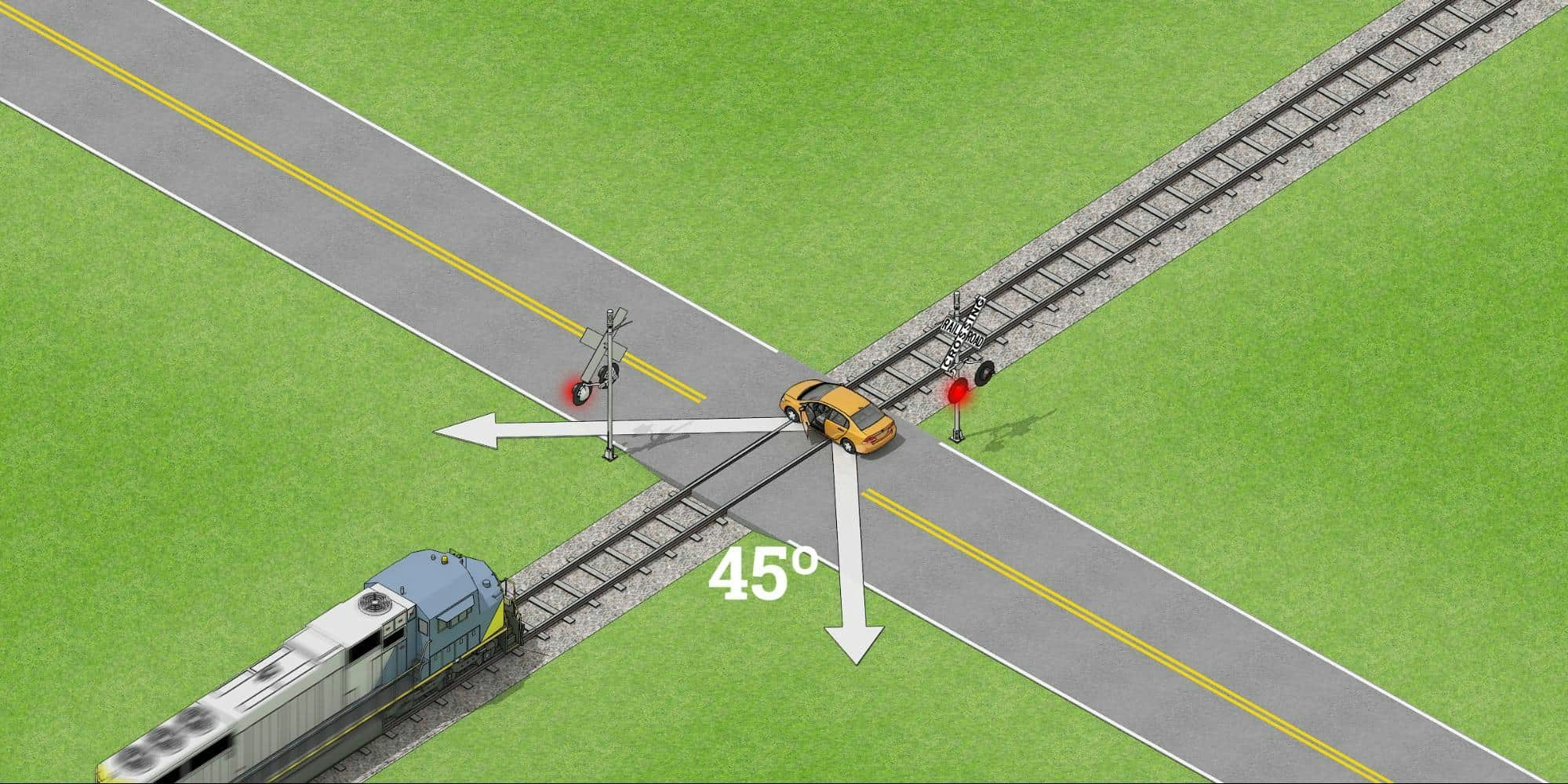
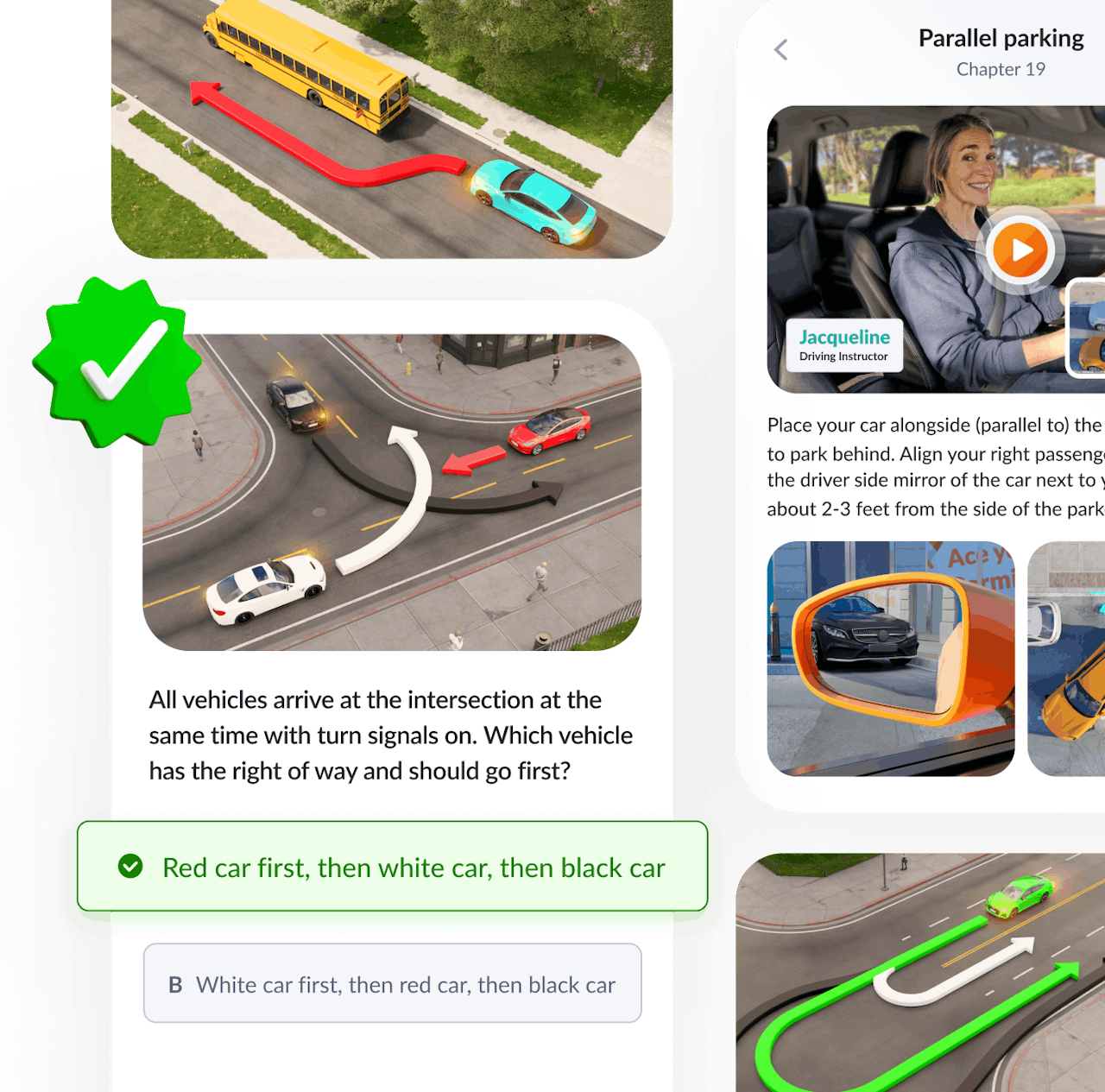
600+ exam-like questions and practice tests
Easy summarized DMV handbook
America’s #1 driver’s ed app with a 95.8% pass rate
Recommended articles
Ace your DMV test, guaranteed
Want to Be the Top School in Your Area?
- Simple & automated admin
- More time for teaching
- #1 learning materials for students

